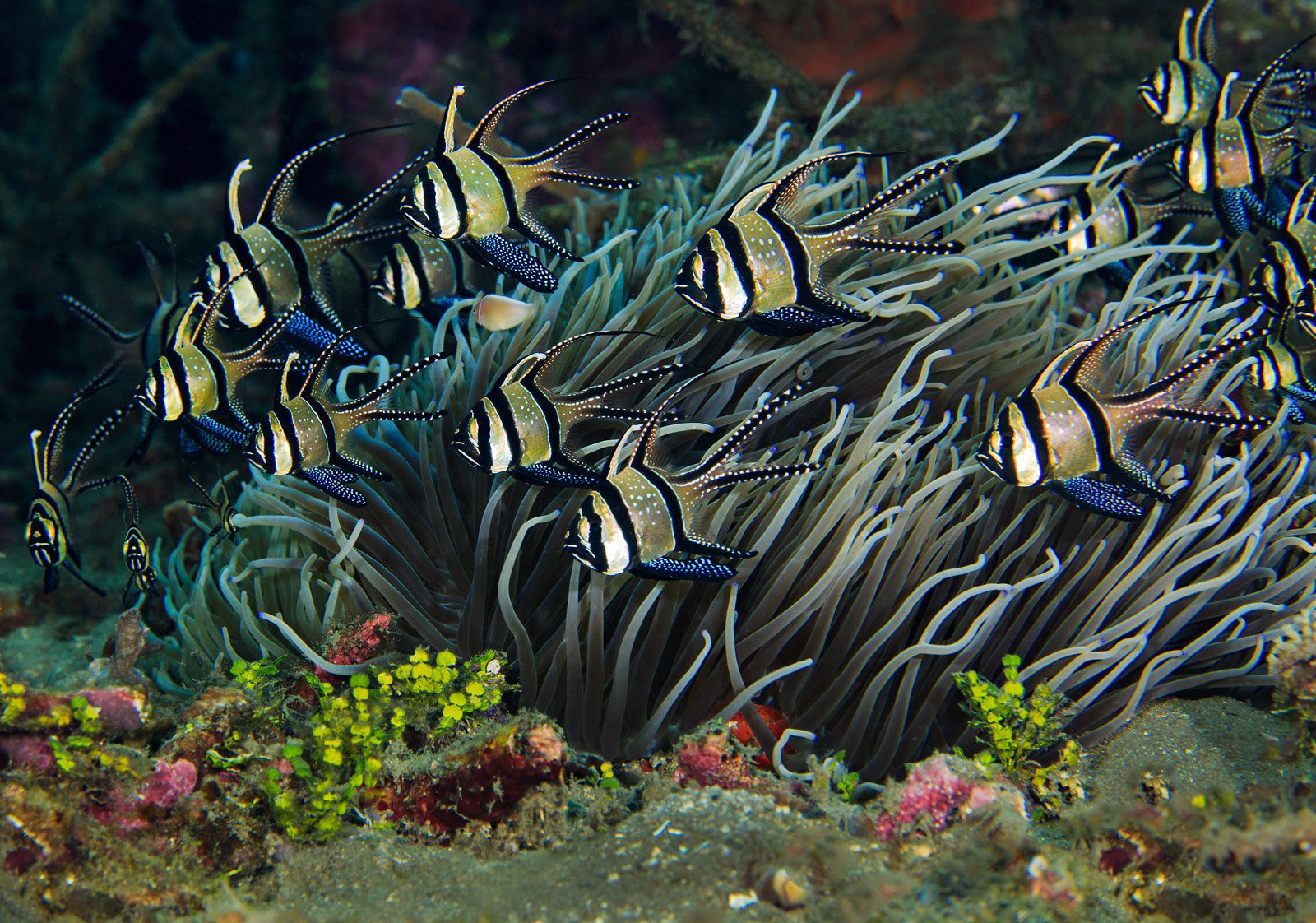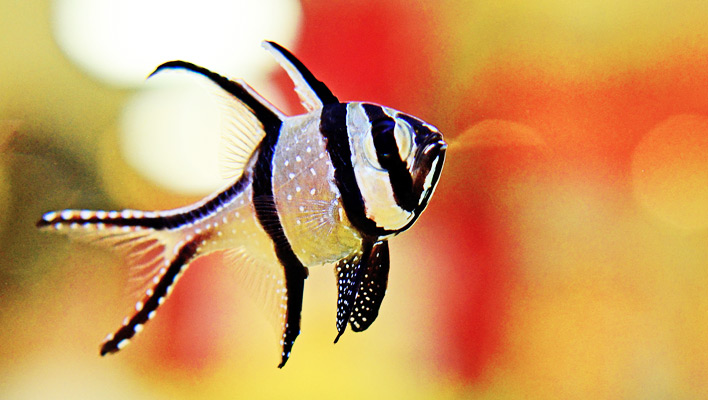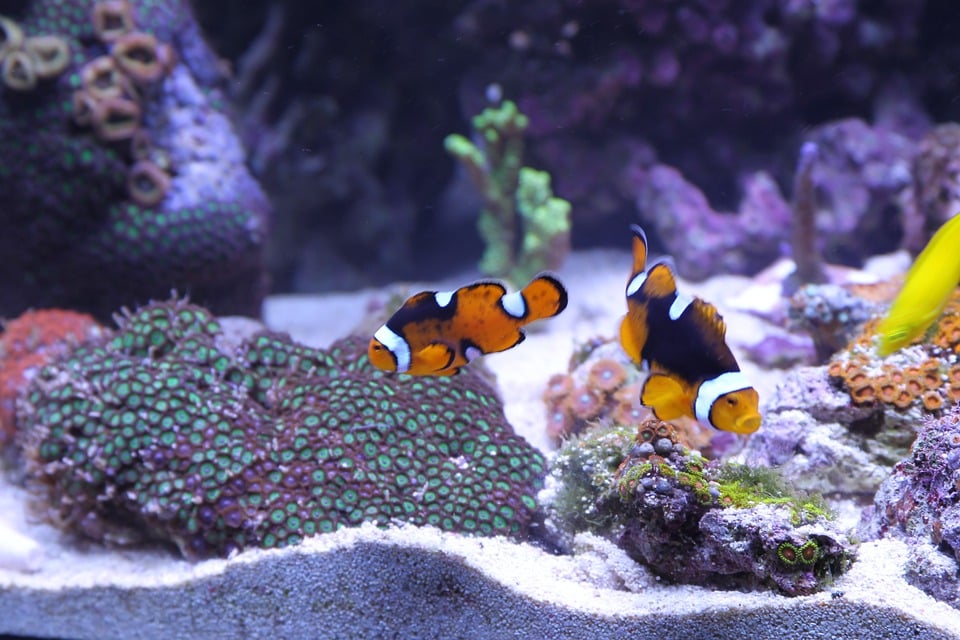Hi All,
Wondering if anyone has already seen this. Particularly Jake @ Biota.

WASHINGTON— NOAA Fisheries has announced a proposed rule to ban the import and export of threatened Banggai cardinalfish, following a 2021 petition from conservation groups.
“Far too many of these gorgeous little fish have been netted from Indonesia’s wild reefs for tanks in the United States,” said Dianne DuBois, a staff scientist at the Center for Biological Diversity. “These proposed protections will give them a fighting chance at recovering their plummeting populations in the wild.”
Banggai cardinalfish, Indonesian coral reef inhabitants known for their bold black bands and white-speckled fins, have seen their numbers plummet by as much as 90% since the 1990s due to decades of overexploitation by the aquarium trade. Scientists have estimated that 75%-80% of the fish collected from the wild die even before they’re exported.
The United States has long been a major importer of the species, with an average of 120,000 imported each year. It is also the world’s largest importer of coral reef wildlife overall, responsible for about 60% of the global market.
“For far too long, the United States has contributed to the exploitation, suffering, and decline of this species in the wild by allowing imports for the aquarium trade,” explains DJ Schubert, a wildlife biologist at the Animal Welfare Institute. “Today’s proposal is the first step in eliminating the United States as a destination for Banggai cardinalfish and sending a clear signal to Indonesia that it must do more to conserve the species and its habitat.”
In 2016 the National Marine Fisheries Service listed the Banggai cardinalfish as threatened under the Endangered Species Act but failed to offer the fish any protections from trade. Monday’s proposal would ban imports and exports of the fish to reduce threats from the U.S. aquarium trade but would not ban sales of Banggai cardinalfish for the pet trade within the United States. The public has until Oct. 16 to submit comments in response to the proposed rule.
“This is an encouraging, yet long overdue, recognition of the dire straits these unique fish find themselves in,” said Jane Davenport, senior attorney for Defenders of Wildlife. “Addressing the biodiversity crisis will take bold and transformative action; forward progress like this is urgently needed to save the terrestrial and ocean ecosystems we depend on.”
Banggai cardinalfish once flourished in the coral reefs of Indonesia’s Banggai Islands. But they are now limited to small, isolated populations because of exploitation from the pet trade, habitat loss and climate change. Several Banggai cardinalfish populations have been completely wiped out.
Beyond its striking appearance, the species is unusual because males are mouthbrooders. A male inhales the fertilized eggs and, while they incubate in his mouth, the female defends her mate.
Coral reef ecosystems are increasingly uninhabitable by Banggai cardinalfish and other coral-dependent wildlife because of coral bleaching, the loss of sea anemones and urchins, and sea-level rise and temperature increases from climate change. This fish will not survive these compounding threats if its populations continue to be exploited by the aquarium trade.
Wondering if anyone has already seen this. Particularly Jake @ Biota.

U.S. Proposes Ban on Imports, Exports of Banggai Cardinalfish
Center for Biological Diversity: Threatened by Aquarium Trade, Indonesian Fish Has Declined up to 90%
biologicaldiversity.org
Threatened by Aquarium Trade, Indonesian Fish Has Declined up to 90%
“Far too many of these gorgeous little fish have been netted from Indonesia’s wild reefs for tanks in the United States,” said Dianne DuBois, a staff scientist at the Center for Biological Diversity. “These proposed protections will give them a fighting chance at recovering their plummeting populations in the wild.”
Banggai cardinalfish, Indonesian coral reef inhabitants known for their bold black bands and white-speckled fins, have seen their numbers plummet by as much as 90% since the 1990s due to decades of overexploitation by the aquarium trade. Scientists have estimated that 75%-80% of the fish collected from the wild die even before they’re exported.
The United States has long been a major importer of the species, with an average of 120,000 imported each year. It is also the world’s largest importer of coral reef wildlife overall, responsible for about 60% of the global market.
“For far too long, the United States has contributed to the exploitation, suffering, and decline of this species in the wild by allowing imports for the aquarium trade,” explains DJ Schubert, a wildlife biologist at the Animal Welfare Institute. “Today’s proposal is the first step in eliminating the United States as a destination for Banggai cardinalfish and sending a clear signal to Indonesia that it must do more to conserve the species and its habitat.”
In 2016 the National Marine Fisheries Service listed the Banggai cardinalfish as threatened under the Endangered Species Act but failed to offer the fish any protections from trade. Monday’s proposal would ban imports and exports of the fish to reduce threats from the U.S. aquarium trade but would not ban sales of Banggai cardinalfish for the pet trade within the United States. The public has until Oct. 16 to submit comments in response to the proposed rule.
“This is an encouraging, yet long overdue, recognition of the dire straits these unique fish find themselves in,” said Jane Davenport, senior attorney for Defenders of Wildlife. “Addressing the biodiversity crisis will take bold and transformative action; forward progress like this is urgently needed to save the terrestrial and ocean ecosystems we depend on.”
Banggai cardinalfish once flourished in the coral reefs of Indonesia’s Banggai Islands. But they are now limited to small, isolated populations because of exploitation from the pet trade, habitat loss and climate change. Several Banggai cardinalfish populations have been completely wiped out.
Beyond its striking appearance, the species is unusual because males are mouthbrooders. A male inhales the fertilized eggs and, while they incubate in his mouth, the female defends her mate.
Coral reef ecosystems are increasingly uninhabitable by Banggai cardinalfish and other coral-dependent wildlife because of coral bleaching, the loss of sea anemones and urchins, and sea-level rise and temperature increases from climate change. This fish will not survive these compounding threats if its populations continue to be exploited by the aquarium trade.




















